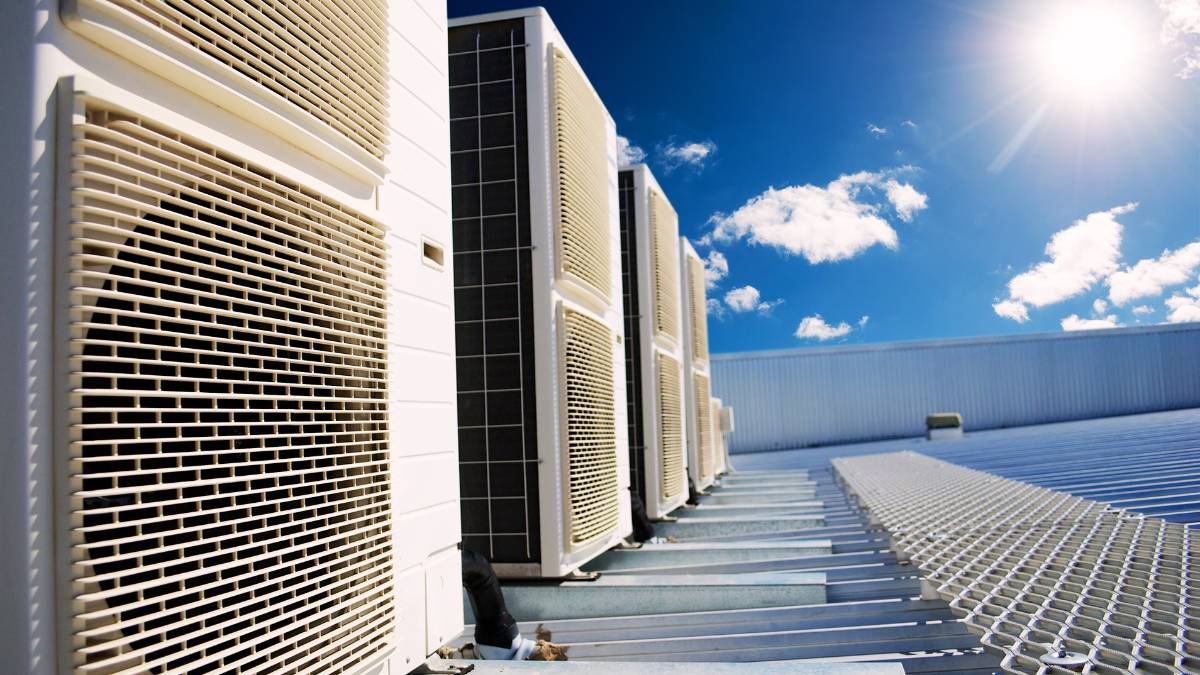Last Updated on August 28, 2024 by Kravelv Spiegel
Beat the heat without breaking the bank! As a small business owner, figuring out how to keep your workspace cool can be a daunting task, particularly when you’re on a budget. Fortunately, there are a variety of strategies you can employ that are both energy-efficient and cost-effective, ensuring that you, your employees, and your customers stay comfortable throughout the warmer months.
Optimize Natural Ventilation
Leveraging natural ventilation is one of the most cost-effective ways to keep your space cool. If your building has windows that can open, make use of them during the cooler parts of the day. Cross-ventilation—where cool air enters from one side and exits from the opposite side—can be particularly effective. Utilizing exhaust fans to expel hot air can further improve the airflow and maintain a cooler indoor environment.
Assess Your Current Setup
Before investing in new cooling solutions, it’s wise to assess your current setup. Are there any drafts or poorly insulated areas that could be letting in excess heat? Identifying and sealing these problem areas can make a significant difference, often at minimal cost. Simple fixes like weather stripping and insulation can reduce the cooling burden on more energy-intensive solutions. In addition to assessing insulation and ventilation, it’s also important to know when to consider identifying the need for a new AC unit. Monitoring the performance of your current air conditioner can help you determine whether it’s time for an upgrade.
Invest in Energy-Efficient Fans
Electric fans come in many shapes and sizes and are generally more energy-efficient than air conditioning units. Ceiling fans, oscillating fans, and even desk fans can help circulate air and create a cooling breeze. Positioning fans to blow air across your body or workspaces can make the ambient temperature feel several degrees cooler, providing relief without the high costs associated with air conditioning.
Shade and Reflect Heat
Reducing heat gain through windows and walls can significantly lower cooling costs. Consider installing shades, blinds, or reflective window films to block out direct sunlight. Exterior solutions like awnings and shade sails can also be effective. These measures minimize the amount of heat entering your building, reducing the need for additional cooling.
Understanding the Importance of Cooling
Keeping your business cool isn’t just a matter of comfort—it’s also important for productivity and health. Excessive heat can lead to decreased concentration, increased mistakes, and even health issues like heat exhaustion. By investing in effective cooling solutions, you’re not only improving the work environment but also boosting overall business productivity.
Employee Education and Participation
One often overlooked strategy is educating and involving your employees in energy-saving practices. Teach them about the importance of keeping windows and doors closed when the air conditioning is on, using blinds or curtains to block out sunlight, and turning off fans or lights in unoccupied rooms. Creating an incentive program for energy-efficient practices can motivate your team to contribute to a cooler and more cost-effective workplace.
Embrace Evaporative Cooling
Evaporative cooling is another cost-effective method, particularly beneficial in dry climates. This process involves using water to cool the air, often through the use of evaporative coolers or ‘swamp coolers.’ These devices not only provide a cooling effect but also add moisture to the air, making them a two-fold solution in arid environments.
Utilize Heat-Generating Equipment Wisely
Many businesses use equipment that generates heat, such as computers, printers, and kitchen appliances. Strategically placing these heat-generating devices in well-ventilated areas can help prevent localized heat build-up. Whenever possible, try to use energy-efficient or low-heat options, and turn off equipment when it’s not in use. This simple strategy can make a big difference in your cooling needs.
Take Advantage of Off-Peak Hours
If your business operations allow it, consider moving some of your work to cooler parts of the day, such as early mornings or late evenings. Not only does this reduce the strain on your cooling systems during peak heat hours, but it can also lower your electricity costs if your utility provider offers off-peak rates. By adjusting your business schedule, you can create a more comfortable work environment while also benefiting your bottom line.
Explore Energy-Efficient HVAC Options
If you find that you need more intensive cooling, it might be worth exploring energy-efficient HVAC units. Current-day systems often come with programmable thermostats that allow for better control over cooling times and temperatures. This means you can cool your workspace during peak hours and reduce energy usage when the space is unoccupied, lowering long-term costs.
Conclusion
Keeping your business cool doesn’t have to be an expensive endeavor. From optimizing natural ventilation and adding fans to embracing evaporative cooling and investing in energy-efficient HVAC units, there are numerous strategies to explore. Implementing these cost-effective solutions can create a more comfortable workspace, improving both productivity and employee morale during those hot summer months. By taking a thoughtful approach to cooling, you can ensure your business runs smoothly without burning a hole in your wallet.

